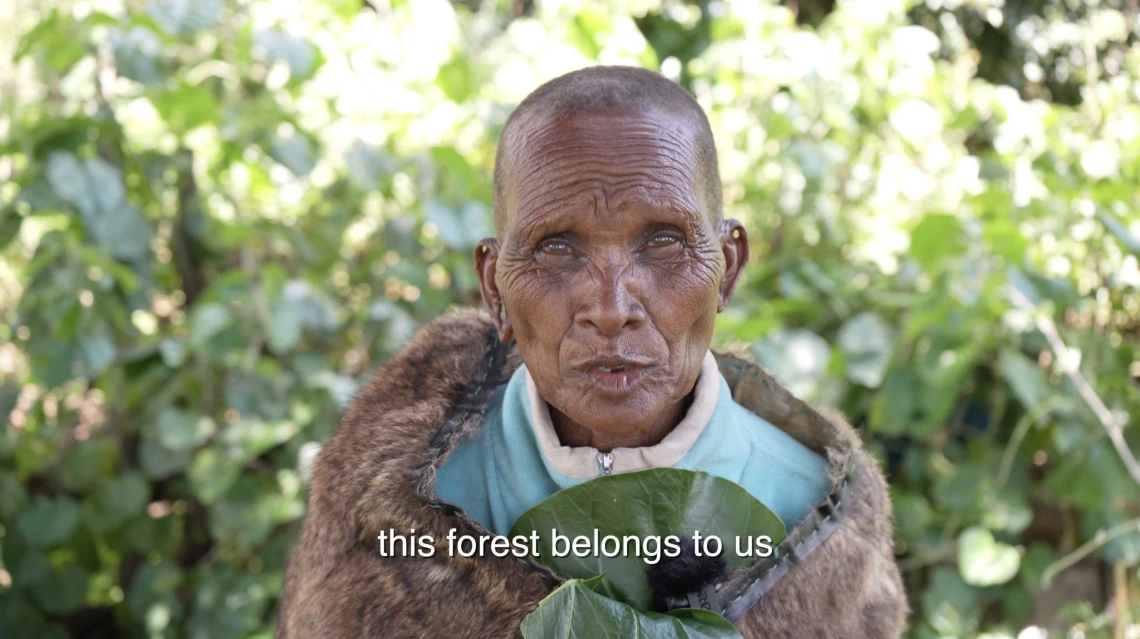The Ogiek being evicted from their forest as victims of conservation.

A few months before we visited the Ogiek community to film their testimonies, without any prior notice many households had been evicted, an estimated 167 houses and a school burned down.
Kenya recently signed agreements that will pave the way for reforestation as well as the production of carbon credits on millions of hectares of land. These projects, and other moves to expand the carbon credits market in the Global South, are expected to greatly increase the theft of Indigenous peoples’ lands; increase funding for violent fortress conservation projects; and will likely lead to many more waves of evictions.
The Ogiek are one of the few remaining hunter-gatherer peoples of East Africa. Their home since time immemorial has been the Mau mountain forest, overlooking Kenya’s Rift Valley.
The Ogiek community comprises 20,000 members. Some live deep in the forest purely by hunting and gathering, while the majority grow vegetables and keep livestock also. Ever since colonial times there have been attempts to evict the Ogiek from their ancestral forest, usually on the pretext that they are degrading it. But when the Ogiek are removed, their forest is not protected but rather exploited by logging and tea plantations. The influx of illegal settlers has been so extreme in recent years that much of the Mau forest is severely degraded.
The Kenyan government is trying to evict everyone from the forest, including the Ogiek. Evicting the Ogiek from their forest home could spell disaster for the forest and for the Ogiek, who will become conservation refugees.
The evictions also violate two groundbreaking rulings of the African Court. In 2017, the African Court on Human and Peoples' Rights ruled that Kenya violated the Ogiek community's rights by unlawfully evicting them from their ancestral lands, denying them access to resources, and hindering their cultural and religious practices. The Court also found that Kenya discriminated against the Ogiek by denying them recognition and protection as an indigenous community.
In 2022, the Court ordered Kenya to compensate the Ogiek, demarcate and title their ancestral lands, consult with them on land concessions, officially recognize them as indigenous, and take all measures to protect the right of the Ogiek to be effectively consulted in respect of all development, conservation or investment projects on its land.
This landmark decision is considered a significant victory for indigenous rights in Kenya and beyond.

